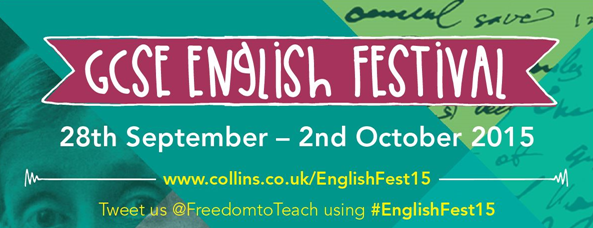Naomi Hursthouse continues to share her advice on engaging all students in 19th century literature in part 2 of her blog post…
Missed part 1 of Engaging All Students in 19th Century Literature? Click here to read the blog post.
Find out more about Collins GCSE English Festival here.
4. Preparing for a closed book exam.
That’s right, students are not allowed books in the exam. As daunting as that seems, I actually believe that closed book exams are a good thing. They force students to be prepared, and not to rely upon the book on the exam table having all the (magic) answers for them. However, we need to make sure that students begin learning quotations from early on in the course. I have planned a series of starters, which test students’ knowledge of key quotations. These include:
- cloze exercises (fill in the missing word)
- matching pictures to key words from the quotation
- matching textspeak versions or tweets to the real thing
You might be surprised by how much your students like the challenge of spotting the correct answer, and then creating their own (better) versions.
5. Making it relevant.
Although the Victorian era can seem like a foreign land for students, the reason these novels are part of the canon are because they transcend the period they were written in. We need to make this clear to our students. So although our students may not be able to relate to the restricting Victorian morals which prompt Dr Jekyll to divide himself in two, I am sure they can relate to the pressures put on them by the very public world of social media, and the attractiveness of being able to ‘bury’ our misdemeanours forevermore. Ebenezer Scrooge may appear to be the typical Victorian misanthrope, however, the behaviour of our own 21st century bankers is surely not so far removed from this antihero’s?
Engaging all of our students with 19th century literature is not going to be easy. However, I think that if we can overcome these five challenges, then we have a fantastic opportunity to make our students not only more literate, but more independent, cultured learners. And that can’t be a bad thing.
Written by Naomi Hursthouse.





